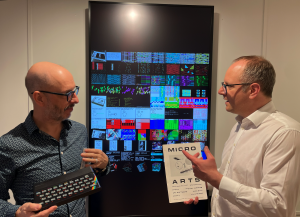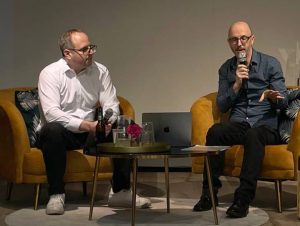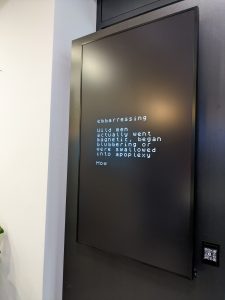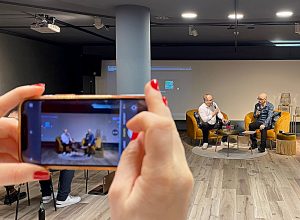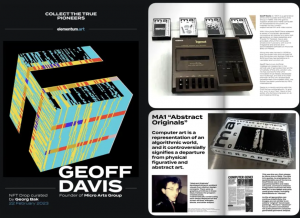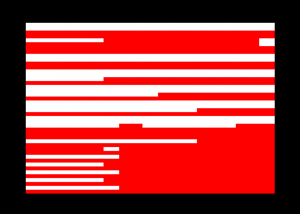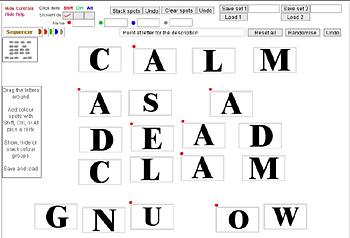Geoff Davis talking about Micro Arts, his 1980s computer art group
Computer Arts Society, 9/6/2020
Video to be posted here soon.
geoffdavis5 gmail com
or use Contact on the this site.
Micro Arts – produced a range of computer art for popular micros, and a paper magazine. Programmed, curated by Geoff, with contributions from friends, male, female, UK, US, France.
Aim was to start a new computer arts group, educate and perhaps sell a few art data cassettes. Later it all went onto Prestel national teletext.
Modelled on art groups London Video Arts and London Film-Makers Co-op; and indie record labels. This was my social background at the time.
Was intended to be a community, inclusive, diverse, populist, grass roots political. No ‘authority’. Not academic, I left University in 1980 and wasn’t thinking of it. No CAS at the time.
Was well reviewed by mainstream computer press, see Reviews.
No internet so hard to market.
Many outputs:
- algorithmic art and animations, MA1 by Geoff Davis and MA3 by Martin Rootes)
- conceptual (long form 2 years, math/code art, Dada word generator etc.), MA2 by Geoff Davis
- graphic feminist/political animations, Money Work System from SCUM Manifesto, MA2
- text generation from a story about the 1980s epidemic of prion mad cow disease BSE, MA4 by Geoff Davis (exhibited at LFMC show, and later distributed on Prestel teletext).
I had a few stories published, this is one of my competing activities. See my section in People.
The print Magazine was free. Full of informative articles, not reviews. (Magazine is on this site.)
Prestel was on invitation from EMAP but that took some of the momentum out of it, then I started working commercially again. See Prestel page.
Also got involved in so-called ‘pirate TV’ NetWork 21. (No pirates, but lots of art, fashion.)
For more from the various contributors see People page.
CAS was not around at this point. Only contact I had was Harold Cohen (art machines) by letter in US, who was famously uninterested in ‘computer art’ as a scene. He told me all art was about marketing. He was in academia, which operates as a huge marketing funnel (as well as providing work for artists).
Personal history
Before Micro Arts I was working in commercial COBOL programming (using pencils) on a Univac 1100 mainframe, and also Vax minis.
After Micro Arts, networking (at Prudential, first use of networked ‘personal computers’ IBM PC ATs in dealing room, no-one there had experience of micros, it was large IBM mainframe site).
Later, worked in new computer graphics lab at Sheffield Hallam University, Psalter Lane art college (12 x Unix Apollo workstations, 2D and 3D modelling and animation, CGAL (Peter Comninos) etc.).
Later still, London Institute teaching, then web industry, apps.
Now computers and text researcher at UAL CCI, Camberwell art college. Still in early stages.
1980s
Huge change in tech from 1980 (mainframes, coding with pencils) to 1990 (workstations). Micros appeared and improved over decade.
Warhol used Amiga, etc. – computers becoming unavoidable in art, design, music, film, smaller businesses.
Early artists moved into commercial work.
What is use now?
Archive, historical.
Educational examples – what can be done with relatively simple computers – hands on – Raspberry Pi
Artworks and merchandise on sale here soon – archival prints, reprint of Magazine, MA1, MA2, MA3, MA4 Data Cassettes, Magazine 2, previously unpublished.
